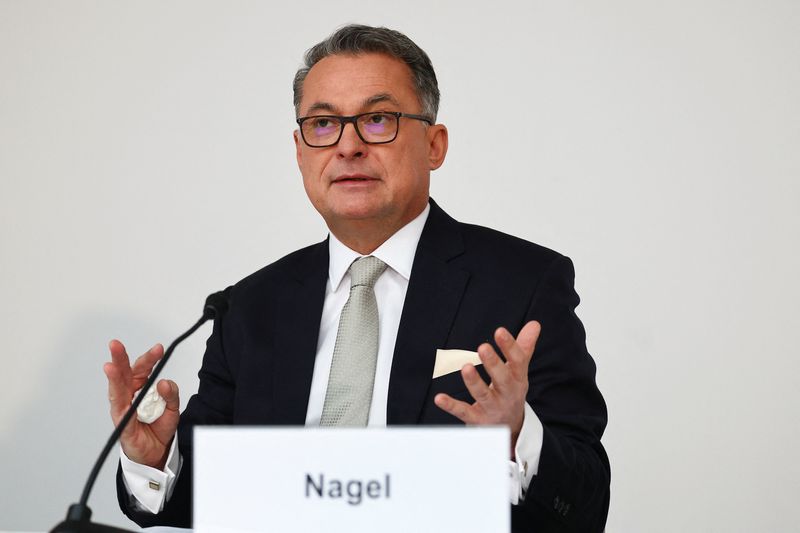FRANKFURT (Reuters) -European Central Bank policymakers lined up behind plans to raise interest rates again next month, but views diverged on policy further down the road as underlying inflation remained stubbornly high even as the economy is barely growing.
The ECB raised interest rates to a 22-year high of 3.50% on Thursday and said it would move again in July, continuing what has been the fastest pace of monetary tightening in the bank's quarter-century existence.
No policymaker took a firm stance on rate action beyond July, but several hinted that the ECB may need to keep going.
"We still have more ground to cover," Bundesbank President Joachim Nagel said in a speech. "We may need to keep raising rates after the summer break."
Belgian policymaker Pierre Wunsch, who was among the first to recognise the ECB's inflation problem, argued the bank would need to see a "substantial" drop in underlying inflation, which filters out volatile energy and food prices, not to raise rates in September.
"If core keeps at around 5% on a yearly basis in the coming months, then we will increase beyond September," he added.
"If we look at the smoothed monthly numbers, they have been around 0.4% a month for over a year," he said. "We don't really see a beginning of slowdown there."
Underlying inflation eased to 5.3% in May, but a big chunk of the drop was due to a one-off administrative discount in German transport prices.
Wunsch has said in the past that the ECB's deposit rate could hit 4% if underlying inflation did not moderate. On Friday he said that conditions for such a rate are materialising.
Austria's Robert Holzmann, one of the most outspoken policy conservatives, kept his powder dry on Friday, arguing that it was too soon to say whether further hikes beyond July are needed.
Lithuania's Gediminas Simkus pushed back on market expectations for early 2024 rate cuts, saying that such a rapid reversal would be puzzling.
The ECB has long said that once rates peak they would stay there for an extended period, but markets have always doubted this, mostly because they expect the U.S. central bank to start cutting rates, which could then force the ECB's hand.
Markets have now fully priced in one more rate hike and see a high probability of a second move to 4% by October, even if uncertainty remains.
The repricing comes as a host of bank analysts raised their expectation for the ECB's terminal rate to 4%.

Joining the chorus behind rate hikes, Estonian central bank chief Madis Muller said more rate action is needed.
"Euro zone interest rates have not yet peaked," Muller said in a statement. "The ultimate goal is clear for the central bank - we need to quickly get the price rise under control."